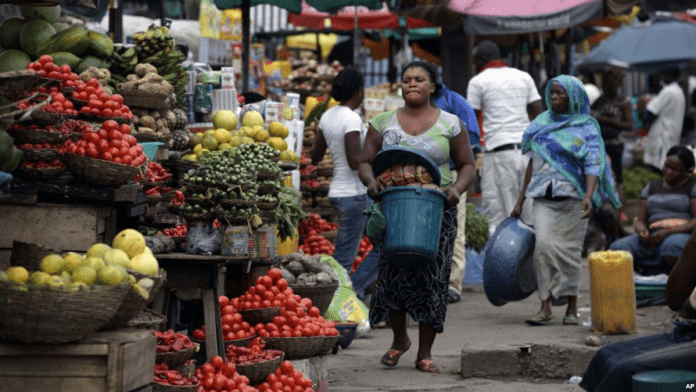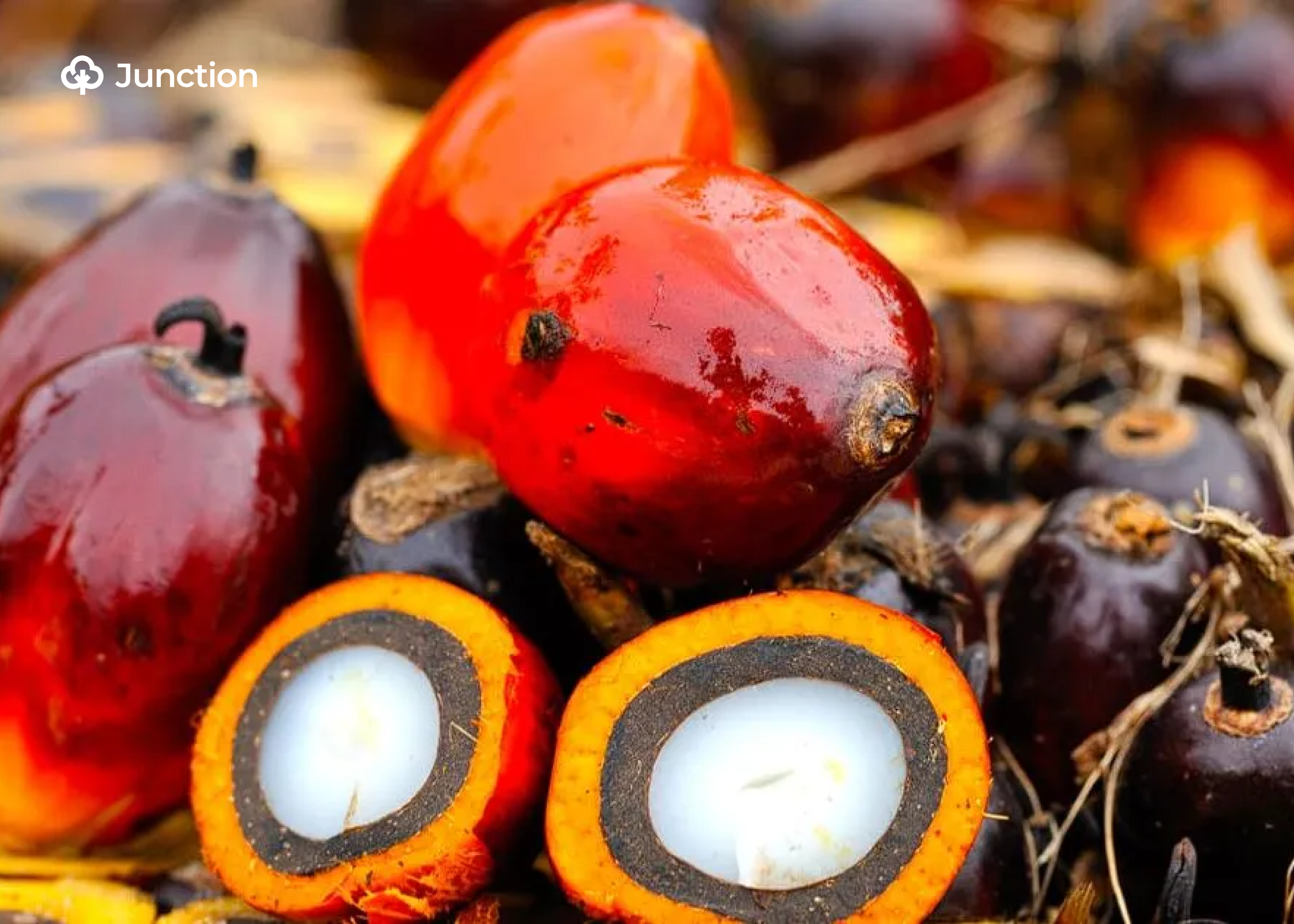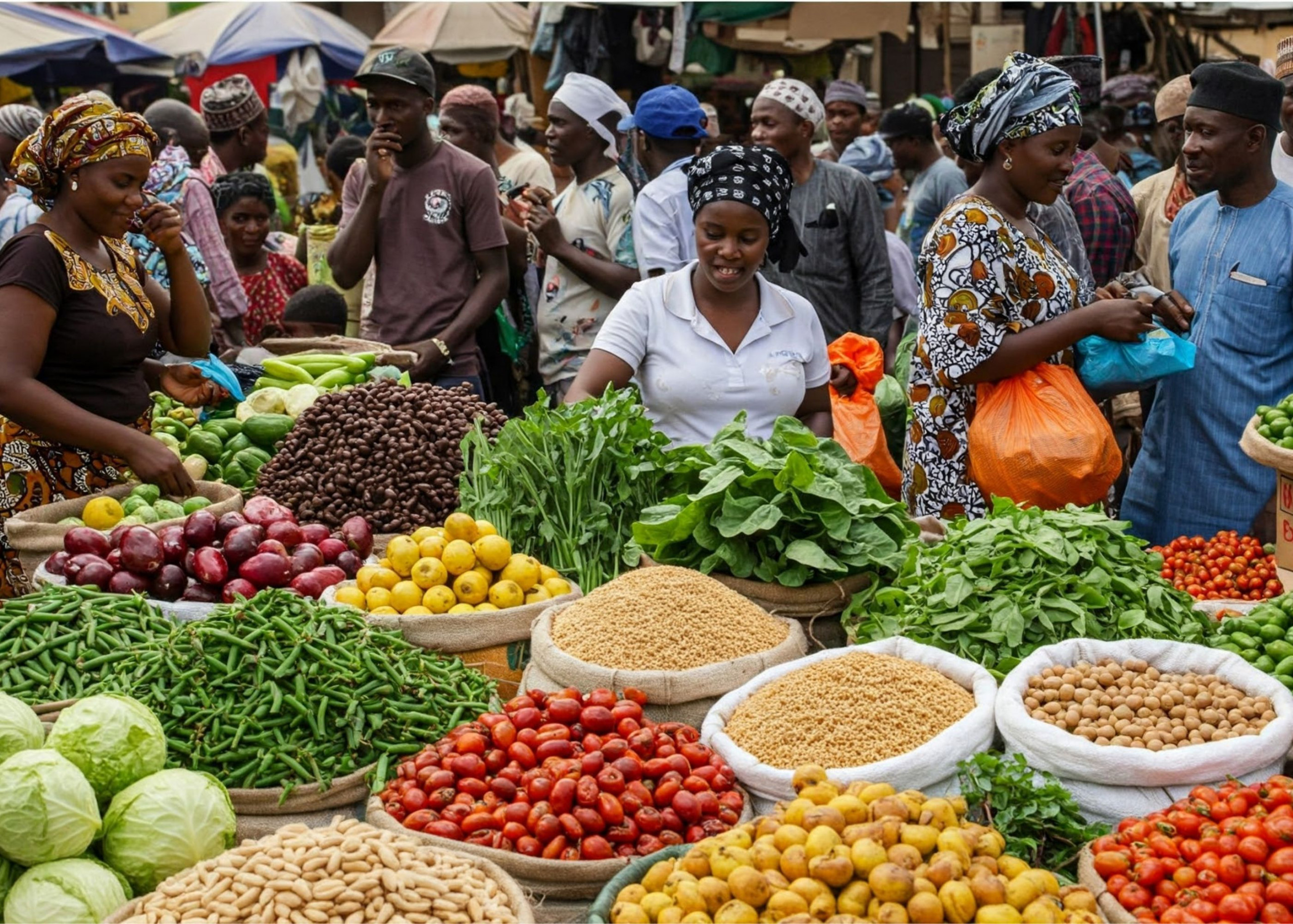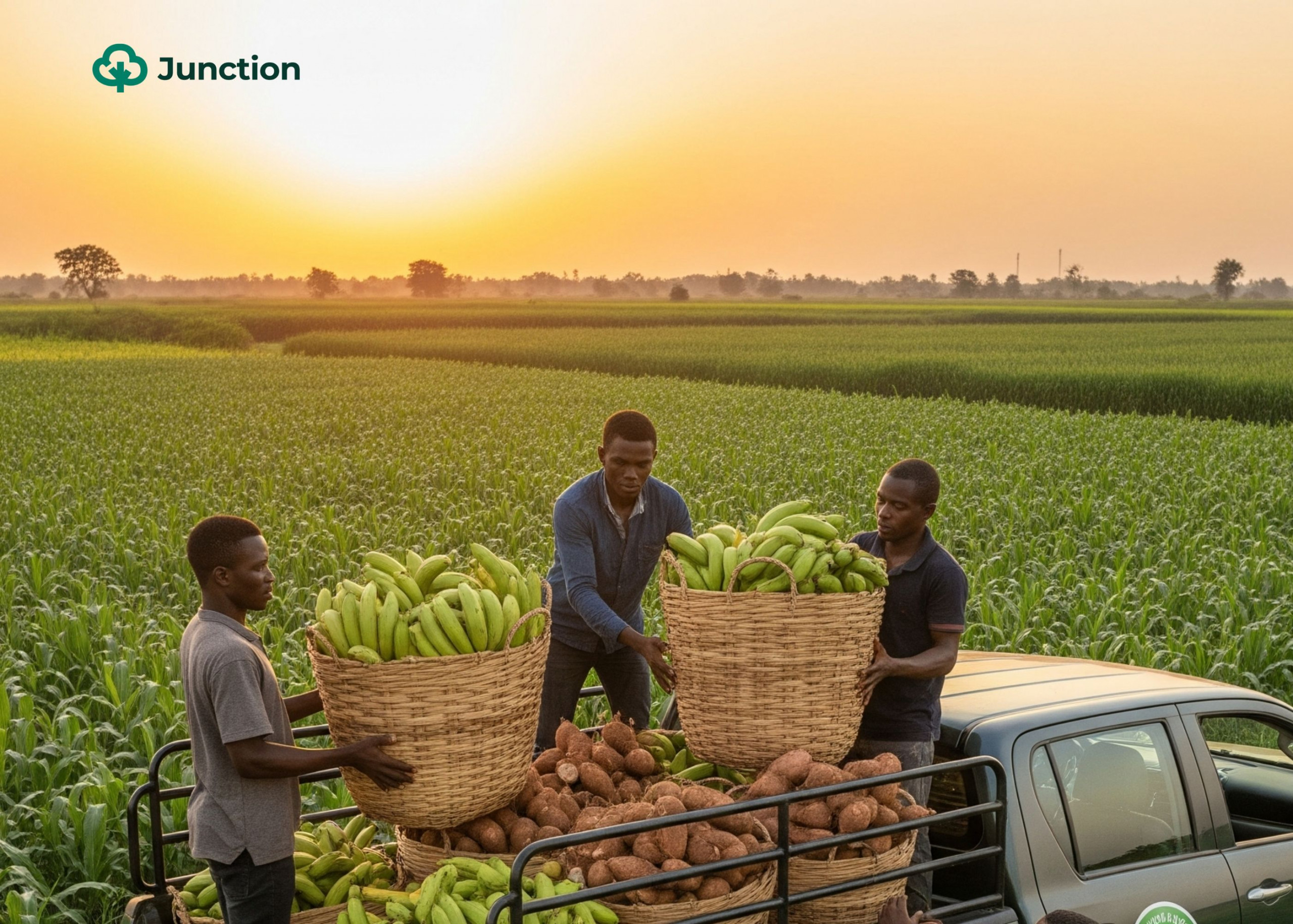News in brief: Nigeria’s food inflation in August 2023 increased by 3.87% month-on-month and 6.22% year-on-year, attributed to rising prices driven by disruptions in global supply chains, currency devaluation, and climate change impacts. Food inflation rate for September is predicted to reach 31.11%.
The month-on-month percentage change in food inflation for August 2023 was 3.87%, which represents an increase of 0.45% from the previous month. Meanwhile, compared to a year ago, Nigeria has seen an increase in food inflation by 6.22%.

According to the National Bureau of Statistics (NBS), increases in the price of food items such as oil and fat, bread, cereals and so on, may have led to the rise in food inflation.
The chart below shows above shows the year-on-year percentage change of food inflation in Nigeria i.e. in relation to the previous year prior. Since dropping steadily between the second quarter of 2021 and the first quarter of 2022, food inflation has continued to rise for five consecutive quarters.
The last time in recent years when food inflation rose continously this way was between the third quarter of 2019 and the second quarter of 2021 (seven consecutive quarters).

Nigeria’s current increase in inflation is also attributed to the ongoing war in Ukraine which has disrupted the supply of agricultural products such as wheat and led to higher import prices.
Additionally, increasing deflation of the naira against the dollar and rising cost of fuel has also contributed to inflation as production and transportation costs are rising within the country.
One cannot also ignore the impact of climate change which is having negative impacts on production yield leading to less supply. Locally and around the world, adverse and unusual weather patterns have left farmers in shock as many are at a loss on what to do.
Using compound annual growth rate (CAGR) from January to August 2023, Nigeria’s food inflation figure for September 2023 is predicted to reach 31.11%. As such, the quarter of 2023 could record food inflation as high as 29.14%.
However, the prices of food items could drop in September because it typically marks the beginning of the harvest season in Nigeria for some major crops driving the inflation marker. Although, harvests need to be ‘bumper‘ to crash prices given that there are other factors affecting pricing.
While the Nigerian government continues to subsidise agricultural inputs, it is also important to invest in infrastructure such as irrigation systems and roads. In addition, promoting climate smart agriculture is a good way to equip farmers with knowledge and tools to combat changes in weather behaviour. Although these will take some time before the impact is seen, it will promote the eventual deflation of food costs.



